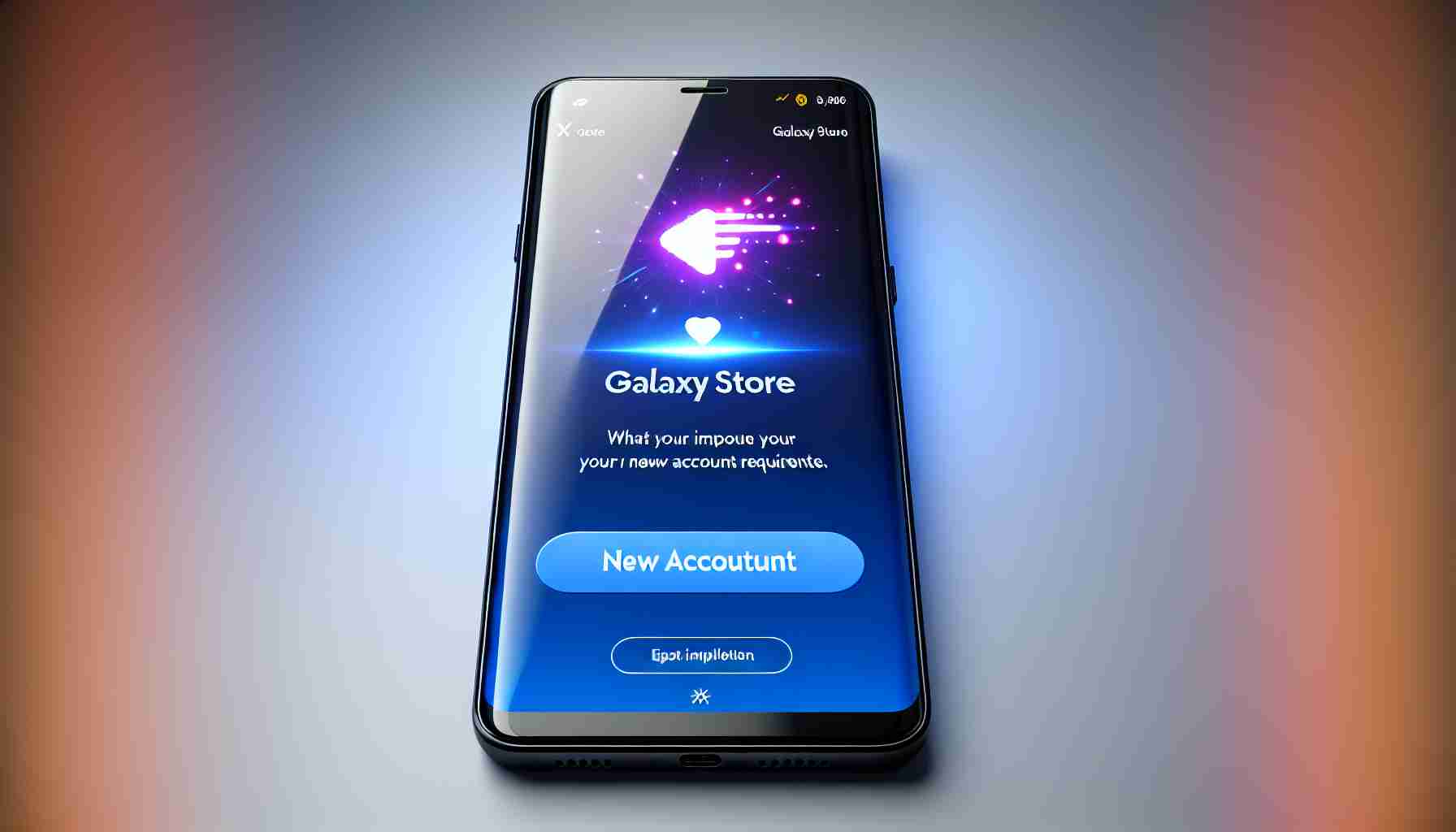
Samsung Galaxy users will soon face significant changes regarding access to the Galaxy Store. In a move to enhance security and control over app installations, Samsung has mandated that users must now log in with a Samsung Account to download apps starting September 25, 2024. This update aligns with Google’s recent measures to eliminate low-quality apps and restrict sideloading while promoting apps from its Play Store.
The requirement to create a Samsung Account has surprised many users. Historically, Samsung encouraged users to set up accounts, yet this is the first instance where access to the Galaxy Store will be fully contingent on having an active account. The latest Galaxy Store update, version 6.6.13.10, brings these changes, effectively barring those without accounts from utilizing its app services.
Concerns have been raised about the reasoning behind this sudden shift. While Samsung’s intention may be to safeguard users from potential risks associated with third-party app stores, the enforcement of a mandatory account could also reflect broader trends within the tech industry. Similar to Google’s initiatives—like enhancing app safety through Play Protect and introducing AI-powered threat detection—Samsung seems to be reinforcing its ecosystem’s integrity.
To avoid disruption in app access, users are strongly encouraged to set up a Samsung Account if they haven’t done so already. Be sure to verify your login credentials ahead of the deadline to ensure uninterrupted access to essential apps and updates.
Samsung Galaxy Store Implements New Account Requirement: Key Insights and Implications
The recent announcement from Samsung regarding the implementation of a mandatory Samsung Account for accessing the Galaxy Store has sparked conversations about user accessibility, security, and the evolving landscape of app distribution. While the news primarily highlights the requirement itself, several related facts and implications are worth exploring.
Understanding the Context
As of September 25, 2024, users will no longer have the option to browse or download applications from the Galaxy Store without a Samsung Account. This fundamental change aims to centralize user data and enhance security protocols, allowing Samsung to monitor and manage user activity more effectively. Such a transition is part of a broader trend in the tech industry towards creating more secure and controlled environments for digital transactions and app interactions.
Key Questions and Answers
1. **Why is Samsung enforcing this requirement now?**
– Samsung is implementing this requirement as part of a strategic move to bolster security and align its practices with industry standards. With increasing concerns over app safety and user data privacy, creating a centralized account system allows for better monitoring and protection against malicious applications.
2. **What happens if a user does not create a Samsung Account?**
– Users who choose not to create a Samsung Account will be completely locked out of the Galaxy Store. This means they will be unable to download new applications, updates, or security patches, which could leave their devices vulnerable over time.
3. **Will existing users face any issues with the new requirement?**
– Existing users will need to verify their Samsung Account credentials. If a user has forgotten their login information, they may face difficulties accessing their apps until their account is recovered.
Challenges and Controversies
One of the key challenges of this new requirement is the pushback from users who value their privacy and may be opposed to creating a centralized account. Critics argue that such measures create a closed ecosystem reminiscent of Apple’s App Store policies, limiting user freedom and choice. Additionally, users without prior Samsung accounts may face challenges navigating the sign-up process, further alienating potential customers.
Advantages of the New Requirement
– **Enhanced Security:** By requiring users to log in, Samsung can better identify and mitigate threats, leading to a safer app ecosystem.
– **User Data Management:** The account system allows for more streamlined management of user data and preferences, improving personalization in app suggestions and updates.
– **Reduced Low-Quality Apps:** This move may lead to the elimination of less reputable applications that do not meet Samsung’s standards, improving overall app quality.
Disadvantages of the New Requirement
– **Inconvenience for Users:** For users who prefer not to engage with multiple accounts, this could be seen as a hassle, especially those who may have previously sideloaded apps from other sources.
– **Privacy Concerns:** Users may feel apprehensive about creating an account with Samsung, fearing potential data collection and surveillance, thus raising questions about privacy and data handling practices.
– **Barrier to Access:** New users or those unfamiliar with creating accounts may find it challenging, leading to frustration and potentially turning them away from the Galaxy ecosystem.
As this development unfolds, the balance between security and user freedom remains a focal point of discussion. The implications for Samsung users and the wider tech landscape will be worth observing in the coming months.
For more information on Samsung’s policies and updates, you can visit the official Samsung website at samsung.com.
The source of the article is from the blog rugbynews.at
